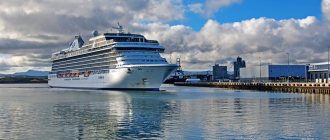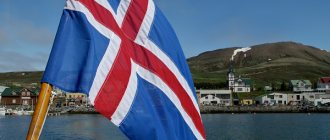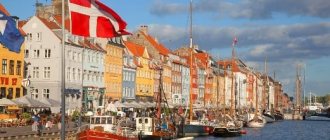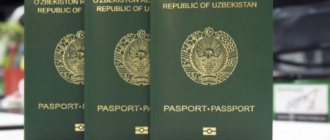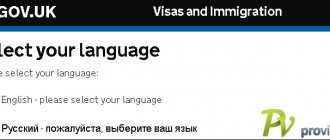Pros and cons of emigrating to Iceland from Russia
The northern island, remote from Russia, on which Iceland is located, is a new destination for Russian tourists. Most recently, direct flights from Moscow to Reykjavik, the capital of Iceland, were launched. This need arose due to close diplomatic relations, as well as due to the rapid development of the tourist destination. Travelers share their experiences, but what do the Russian emigrants who moved say about life in the “Land of Ice”.
Pros of moving
You can take a closer look at Iceland by studying the following advantages:
- Standards of living. In the ranking of countries in the world by standard of living for 2021, Iceland ranks 5th. The quality index is noted as one of the highest - 188, purchasing power - 92, safety - 76, cost of living - 97. Such indicators influence positive immigration not only from developing countries, but also from the Baltic states and the EU. This is not to say that local residents have not had problems in the past. Of course, they faced a global crisis in 2008, but were quickly able to mobilize. Perhaps due to the replacement of conservative leadership or new economic trends. Iceland is currently undergoing a large-scale diversification of industries: it is planned to open a large aluminum smelter and develop the tourism, banking and technology sectors.
- Decent wages. Over 80% of the population are able-bodied and are employed in such areas as fishing, agriculture, and the service sector. The indigenous people, who number only 350,000 people, have well-paid jobs and can afford to buy a house, a quality car, and pay all the necessary expenses. The average salary in the country is €4,551 before taxes, and €3,157 after taxes. The Russian average salary of €567 can hardly compete. Undoubtedly, this is a worthy argument to emigrate to Iceland from Russia.
- Safety on the island. Having experienced unrest in the CIS countries, some residents decide to move to protect their family. Iceland is very suitable for this; it has the highest level of security. One of the reasons for the lack of crime is that residents know each other well. Other reasons lie in the same level of income and law-abiding citizens.
Cons of moving
Opinions about Iceland vary widely between travelers and migrants. The North Island is not suitable for everyone; living here is very different from Russia, Ukraine and other CIS countries. You need to come to terms with the peculiarities of the northern island or choose another state to move to. For those expats who would like to immigrate to Iceland, it will be useful to familiarize yourself with the disadvantages:
- Climate. In Iceland, summer is very short and cool, temperatures in mid-July reach +11...+20 degrees. “White nights” are observed throughout the summer. In winter, the temperature reaches its maximum -1...-2 degrees. All seasons are accompanied by strong sea winds. The weather can change every half hour, due to the fact that the island is located in the northern part of the hemisphere, and also does not border geographically with other countries. Residents from the northern regions of Russia can emigrate here. For them the climate will not seem as harsh as for southern immigrants.
- Monotony. This concept applies to all small states. Iceland has its own way of life - measured and family-oriented. In their free time, Icelandic families most often visit local pubs, organize parties or simply sit at home. And the weather is not for walking! For emigrants from Russian megacities, this lifestyle is probably not suitable. Although during their vacation Icelanders fly to Spain, Italy, and the Canary Islands to bask, they go to the UK, Norway, and Germany on short weekends.
- Expensive. By Russian standards, goods and housing rentals are very expensive in Iceland. Many products are imported, and accordingly the prices are very high. Indigenous residents can afford to buy real estate, so renting houses is only for visitors. It should be noted here that it is easier for wealthy Russians to emigrate to Iceland.
Children have the right to be dirty, but they know what responsibility is.
At first I was amazed by the dirty children dressed unstylishly. Here they look like they just came from a fashion show: clean, combed, beautiful. Icelandic kids in simple overalls, rubber boots, and rubber pants. Thank you Icelanders! I'm glad we can walk home up to our ears in mud and not attract surprised looks. Children are given freedom from infancy, but at the same time they are fully responsible for their decisions when they become adults: they earn money themselves, they decide when and with whom to start a relationship and have children. Iceland has an approved list of names for children. There are those familiar to our ears: Maria, Eva, Victor, Anton. And there are those that you heard in Western films: Karl, Oscar, Benedicta, Christian. And many names are impossible for our people to pronounce. I really like that in Iceland no one interferes in other people's business. Is your child naughty? Got dirty? Eating the wrong food? Drinking the wrong water? Dressed inappropriately for the weather? Acting strange? Nobody pays attention. The life of an Icelandic child is not in danger if he walks 100 meters without a hat or even a jacket in winter, if he eats a chocolate bar, if he gets dirty or eats sand.
Ways to move to Iceland for permanent residence in 2021
Today, emigration to Iceland is still a rare phenomenon among citizens of the Russian Federation or the CIS. Little attention is paid to the country due to the unsightly volcanic landscape and northern climate. According to reviews of Russian tourists, “Glacier Country” is itself mysterious and interesting. Here the life of ordinary people is quite peaceful, which is why Icelanders do not move to other countries. The only thing the Immigration Department is struggling with is the move to the capital, Reykjavik. People come here from all small towns and villages to get a vocational education and find a decent job.
Today there are 321,000 native Icelanders living in Reykjavik, 35,000 residents in Kópavogur, and 28,000 residents in Hafnarfjörður. These cities are considered the largest. By Russian standards, this number is typical for small towns or suburbs. Perhaps this is why local authorities have become more loyal to emigrants from Russia who are ready to move for permanent residence.
If we consider the methods of emigration, the most proven ones are:
- Work migration.
- Marrying an Icelander.
- Student visa.
Work migration
The Icelandic Ministry of Labor is quite selective in choosing candidates for open positions. According to government rules, local companies must first look for employees among the indigenous population. Even if there is no suitable Icelander, they consider the resumes of EU applicants. Citizens from Poland, Estonia, Latvia, and Lithuania are often hired. Today, Iceland is especially in demand among the Baltic states for emigration purposes. In order to immigrate and apply for a job, a Russian or Ukrainian must have a European education or meet the requested requirements.
A separate niche in the international market is occupied by technical specialists and software developers. The main requirement for such candidates is experience in developments and projects. It should be supported by direct evidence, namely a finished product or a set of special knowledge. The minimum salary for such specialists in Iceland is €3,000, the maximum is €6,000. To obtain a work visa, a Russian citizen will need a special permit. The hiring party submits an application to the Ministry of Labor to hire an expat. If approved, the immigrant receives a permit and transfers it along with other documents to the Icelandic Embassy from the Russian Federation.
Documentation
Migration for employment includes the collection of the following documents:
- application in English or Icelandic;
- international passport;
- Russian passport;
- photograph on a white background 35*45 mm;
- receipt for payment of the visa fee;
- medical policy for a coverage amount of €30,000;
- Icelandic clearance, work contract, job offer;
- bank statement for the last 6 months;
- booking airline tickets, hotels or rental contracts.
Price
The immigrant will need to pay a visa fee of €35. Additional costs will include the purchase of a medical insurance policy. The employer bears the costs of air tickets and accommodation for the first time.
Deadlines
The period for reviewing a package of documents at the Embassy is 5 working days. In individual cases it may be 2 weeks.
Marrying an Icelander
Native Icelanders have a Scandinavian mentality and their views are considered conservative. For Russian men or women, they may seem too simple, as well as their appearance. They do not strive to stand out in society; they dress modestly; the main thing for them is comfortable and warm clothing. To understand their culture and understand the Icelandic language fluently, you need to move here for a long time. It is unlikely that you will be able to get married after communicating on social networks. Icelanders, like all Scandinavians, prefer to see their own nation as a spouse. Therefore, this method of migration can hardly be considered effective. But still, if you manage to establish a close relationship, a residence permit will be issued without any complaints.
Documentation
To emigrate you must present:
- a completed application form of the established form;
- foreign passport;
- residence passport;
- immigrant's birth certificate;
- marriage certificate with an Icelander;
- several photos measuring 35*45 mm;
- confirmation of the financial solvency of an Icelander.
Price
To get married, you need to come to the island. For this you need a Schengen visa. According to the tariff, they pay a consular fee of €35, also for translation of documents at local rates.
Deadlines
The immigration process for a foreign spouse will take on average 1-1.5 months. It is important that the Icelander can provide documents that show the resident’s wealth. Based on the calculation of the consumer basket, the average Icelander should have €50 per day per person.
student visa
A student visa allows you to come to study and then stay to live. Due to the low percentage of emigrants, the Icelandic Ministry of Education is puzzled by the issue of simplifying visas for students. There are only 7 universities in the state; professional courses are taught in Icelandic, which reduces the number of applicants from European continents. But recently, educational institutions specializing in English and Icelandic are increasingly opening in large cities in Iceland. After which, students from the CIS began to consider options for studying and moving to the northern island. According to the standard, emigrants first take a language course and then enter university. And, therefore, in the future it will be easier to find a job and move to a residence permit.
Documentation
Older people can also migrate on a student visa. The list of documents includes:
- invitation from a language school or university;
- student visa application;
- motivation letter in English;
- foreign passport;
- photograph size 3.5*4.5 cm;
- bank statements, your own or those of the sponsor (parents, company).
Price
Each university requires a registration fee, which must be paid by any immigrant. Rates will be determined on an individual basis. The average cost of training is from $300-4033.
Deadlines
An application for moving on a student visa is considered at the Icelandic Embassy in Russia. The approximate period for receiving a response is 1-2 weeks.
Features of immigration to Iceland for men
A couple of years ago, there was a wave of fake information on Facebook about the introduction of a new Law on Marriage with Migrants. The post stated that the Icelandic Government provides a monthly allowance of $5,000 for men who marry an Icelandic woman. Presumably, they wanted to increase the demography of the island. As a result, this post found a response, but local residents, including the Immigration Department, denied such news. There are indeed fewer men than women on the island, but it is worth considering that same-sex marriage has been legalized in Iceland since 2010.
Standard of living
Iceland is currently one of the richest countries. This is facilitated by:
- abundance of natural resources;
- correct conduct of foreign policy;
- positive attitude and high working capacity of the local population.
In this country, they treat their ancestors with respect and great trepidation, support and do not forget national traditions. The main occupation of most of the population is animal husbandry, fishing and agriculture.
Read also: How to grant citizenship to a child?
The sale of fish products makes a great contribution to the economic development of the country. A large amount of it is exported to various countries, including the United States of America.
Iceland is distinguished by its closedness and conservatism. Quite recently, after long discussions in parliament, a decision was made to join the European Union.
Almost the entire working-age population has a place of work. Only 15% of adult residents are unemployed.
The process of obtaining a residence permit in Iceland
A long-term visa for a work contract or training makes it possible to emigrate from the Russian Federation for good. Upon arrival, emigrants contact the Immigration Department and submit an application for a temporary residence permit. Those who marry a resident are issued a permanent residence document and then granted citizenship.
Documentation
The following are sent to the Immigration Department for consideration:
- foreign passport;
- photographs measuring 3.5*4.5 cm, 4 pieces;
- sample application;
- proof of the right to stay in the country legally;
- bank statements, printouts;
- contract for rent or purchase of housing;
- certificates of no criminal record;
- medical insurance;
- Receipt of payment;
- other documents upon request.
Price
To stay with a residence permit, you need to pay a state fee of €286. Over time, you will have to pay the amount for obtaining permanent residence, as well as citizenship at the current rate. For migrants under 18 years of age, the Immigration Department has set a lower cost.
Residence permit registration period
The maximum period for obtaining a residence permit for immigration is 30 calendar days. Due to the small flow of emigrants, it may be less.
Validity
In practice, the immigration service issues a residence permit for 3 years, after which you can prepare certificates for permanent residence. Upon review, permanent residence is issued for 4 or 7 years. Further, only a law-abiding migrant can become a citizen of Iceland by obtaining citizenship. The total period of naturalization will take from 7-10 years.
Principle of legalization
The procedure for obtaining citizenship always takes a long time and requires preparation. The following sequence can be designated:
- Purchasing a visa - Schengen or national is allowed. To do this, you should contact the consulate or embassy. The waiting period will take up to two weeks. A multiple visa is issued for a period of five years;
- Obtaining a residence permit occurs in different ways: through employment, marriage or study. It is better to start dealing with this issue immediately after arriving in the country;
- Registration of permanent residence - at least you need to stay in the state for three years and fulfill the conditions put forward by the country;
- Granting citizenship - for this you need to live in Iceland for seven years and create a solid foundation for your future.
Read also: Is it worth moving to Krasnodar
Prices for main groups of goods
Before immigrating from Russia, it is advisable to find out the pricing policy of Iceland. Which products and goods will you have to shell out for, and which ones will have the usual price. In 2021, the cost for the main groups of goods is:
| Products in quantities of 1 kg: | in EUR |
| Beef tenderloin | €22,81 |
| Chicken breasts | €15,36 |
| Hard cheese | €12,00 |
| Eggs 12 pieces | €4,46 |
| White rice | €2,60 |
| Fresh bread 0.5 kg | €2,64 |
| Milk | €1,10 |
| Water 0.33 liters | €1,62 |
| Water 1.5 liters | €1,78 |
| Apples | €2,23 |
| Bananas | €2,02 |
| Oranges | €2,28 |
| Tomatoes | €3,74 |
| Potato | €2,05 |
| Onion | €1,22 |
| Lettuce | €2,26 |
| Wine 1 bottle | €18,26 |
| Beer 0.5 bottle | €2,88 |
| A pack of cigarettes | €9,49 |
| Other expenses: | in EUR |
| Basic wardrobe for one person | €499,00 |
| Meals in a cafe at one time | €16,07 |
| Average restaurant bill for two | €87, 64 |
| Fast food at McDonalds | €11,68 |
| coffee drink | €3,86 |
| Monthly fitness club membership | €57,79 |
| Monthly pass | €85,82 |
| Taxi within 1 km | €2,19 |
| Gasoline 1 liter | €1,43 |
| Cinema ticket | €10,88 |
| Private kindergarten per month | €263,98 |
| International school per year | €17 528,00 |
| Purchase or rental of property: | in EUR |
| Rent a one-room apartment in the center | €1 253,63 |
| Renting housing outside the center | €1 002,45 |
| Buying an apartment in the city center for 1 sq. m. | €3 878,42 |
| Buying housing outside the center for 1 sq. m. | €2 821,11 |
| Public utilities | €89,32 |
| Internet 60 Mbit | €46,77 |
| Economy class car | €24 101,00 |
Country information
Iceland is the most significant and largest island state in Europe, located in the North Atlantic Ocean. The total area, including all the small islands, is 103 thousand square meters. km.
The closest neighbors are Greenland and Norway. The Greenland Sea washes the northern side of the island, and the Norwegian Sea washes the eastern side. Almost the entire territory of the island is a volcanic plateau. The height above sea level is on average 500 m. The country has several active volcanoes, many hot springs, geysers and glaciers. The latter are considered the largest in the world. Their total area exceeds 11 thousand square meters. m. Thanks to this, Iceland was nicknamed “glacier country”.
In summer, the island experiences white nights; in winter, you can admire the northern lights.
| Capital | Reykjavik |
| Currency | ISK - Icelandic krona |
| Population density | 3 people per 1 sq. km. |
| Language used by the population | Icelandic |
| Life expectancy is average | 80 years old |
| GDP | 15.33 billion dollars |
In-demand professions and salaries in Iceland
You can find a job in Iceland in common ways - contact a recruiting agency, publish your resume on international and Icelandic websites, or visit employers yourself. As in many European countries, work is divided into main and temporary. In the first option, vacancies are available in the fields of IT technology, industry, and social work (in sanatoriums, kindergartens). You can get a seasonal job as a builder, road repairman, or logistics driver.
In 2021, the most in-demand professions include:
| Professions | in EUR |
| Programmer-developer | €5 340,00 |
| Surgeon | €3 650,00 |
| Obstetrician-gynecologist | €3 270,00 |
| Social service worker | €2 100,00 |
| Civil Engineer | €4 290,00 |
| Builder | €2 400,00 |
| English teacher | €2 690,00 |
| Driver-logistician | €2 550,00 |
Standard of living in the country
Prices for services and goods are high, housing is expensive, but 80% of adult Icelanders have a job. For those with low incomes, the authorities provide subsidies and benefits.
The standard of living in Iceland is one of the highest in the world.
The main areas through which the country's budget is replenished are tourism, the fishing and processing industries, non-ferrous metallurgy and the production of cheap alternative electricity.
Attitudes in Iceland towards emigrants from Russia
After immigration, many immigrants from Russia feel uncomfortable; the new rules and Icelandic mentality limit their actions. But after a couple of years the situation improves noticeably, the sense of self-control subsides, and local habits already exist. The northern population is distinguished by restraint in communication, but responsiveness comes first for them. They are always ready to give practical advice and help in difficult situations. Over time, visitors become similar to locals - in their style of clothing, lifestyle, and behavior. There are few immigrants here with refugee status - it is very difficult to leave to live this way. In general, the attitude towards emigrants from Russia is very good.


